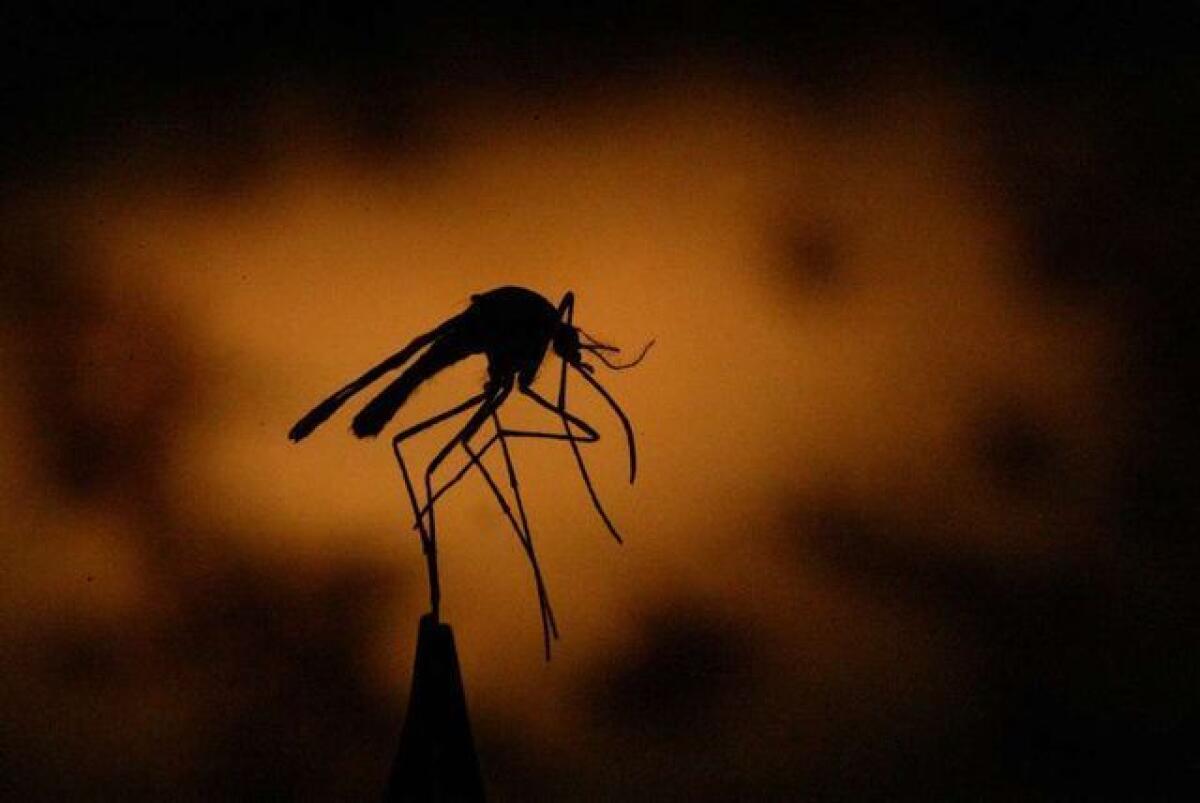West Nile Virus cases confirmed in mosquitoes, bird samples found in Orange County

Three mosquito samples collected in Anaheim, Cypress and Garden Grove on Wednesday tested positive for West Nile Virus, accounting for the first positive samples in Orange County this year, according to the countyâs Mosquito and Vector Control District.
Mosquitoes were collected in Cypress at Cerritos Avenue and Lexington Drive, in Anaheim at East Sycamore and East streets and at Garden Grove Boulevard and Stafford Street in Garden Grove.
District officials confirmed in a release Thursday that one dead bird, collected in Irvine, had also tested positive for the virus.
âWest Nile virus positive mosquito samples indicates that the virus is active in Orange County and there is an increased risk for residents to become infected with WNV through a mosquito bite,â Robert Cummings, Director of Scientific Services for the district, said in the statement.
Humans are typically infected with the virus when bitten by an infected mosquito. Mosquitoes become infected by feeding on birds that already have the virus.
Currently, no human infections have been confirmed in Orange County, the release stated.
District staff are continuing to conduct surveillance and inspections and will employ control measures in select areas to prevent mosquito breeding. Workers will post West Nile advisory signs to alert residents in affected areas of high virus activity.
In order to prevent mosquito bites, residents are encouraged to dump and drain containers of water at least once each week, clean and scrub bird baths and pet water bowls weekly and keep potted plant saucers free of excess water.
To learn more about West Nile Virus, visit ocvector.org/west-nile-virus.
All the latest on Orange County from Orange County.
Get our free TimesOC newsletter.
You may occasionally receive promotional content from the Daily Pilot.




